Table of Contents
The Hidden Struggles of Tuition That Parents Often Overlook

For many parents, tuition classes have become the default solution when their child struggles in school. It feels like the “safe” choice—an extra hour of guidance, another opportunity to revise lessons, and a teacher dedicated to helping their child. But in reality, tuition often adds to the pressure. For Class 3–4 children, the day already begins early with school, homework, and co-curricular activities. By the time they reach tuition, their mental energy is depleted.
The rigid structure of tuition doesn’t address one key truth: every child learns differently. Tuition simply repeats the same school-style teaching—chalk, board, repetition—without creating genuine engagement. For children in Classes 3–4, learning is most effective when curiosity and play are involved. Unfortunately, tuition rarely offers that spark.
Instead of cultivating curiosity, tuition often focuses on quick exam preparation and memorization. Parents see grades improve temporarily, but over time, the child loses interest in the joy of learning. And for many, this loss of enthusiasm shows up as boredom, resistance to homework, or a belief that learning is just a chore to get through. That’s exactly why parents are now exploring Game Based Learning as a better alternative.
Understanding Game Based Learning and Why It Works for Young Minds
Game Based Learning is a teaching approach that transforms lessons into interactive games. Children engage with concepts through challenges, puzzles, quizzes, and storytelling, making education feel like play instead of work. The beauty of this method lies in its ability to combine fun with focus—keeping children motivated while still covering essential curriculum topics.
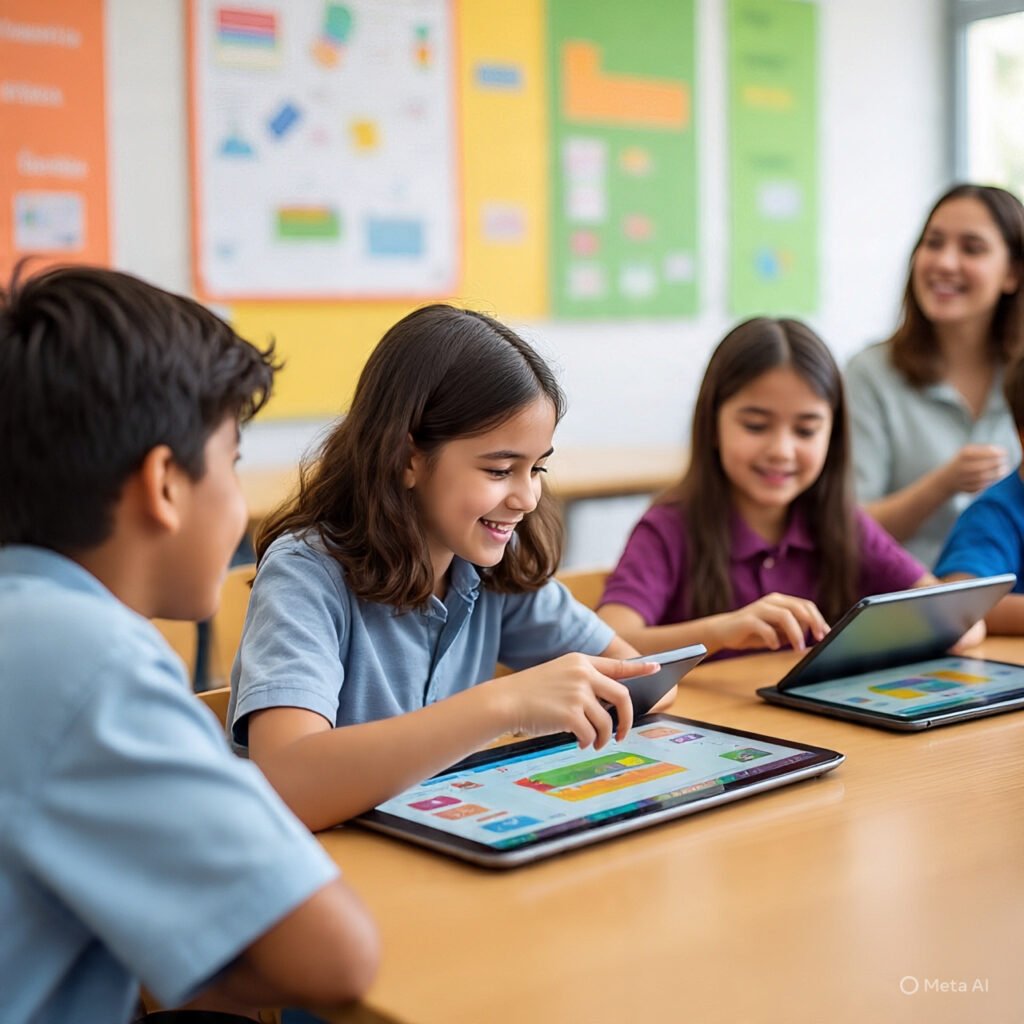
When a child in Class 3–4 is given a maths problem in a game setting—like unlocking a treasure chest by solving an equation—they don’t just memorize the steps; they understand why the steps work. This shift from rote learning to active problem-solving is exactly what makes Game Based Learning so powerful.
It also reduces the fear of mistakes. In traditional tuition, a wrong answer can bring embarrassment. In game-based environments, a wrong answer simply means “try again.” This simple change encourages persistence and resilience—two qualities that help children far beyond academics.
And this is where Focus Fun excels. It offers curriculum-aligned games for Maths, English, Science, and GK, all designed for children’s mental and emotional needs. The app keeps children engaged with points, levels, and rewards, while parents get to monitor both progress and screen time. The result? Children actually look forward to their study time.
Why Game Based Learning Outshines Tuition for Class 3–4 Students?
The difference between tuition and Game Based Learning can be summed up in one word: engagement. In tuition, children often sit passively, waiting for instructions. In game-based learning, they are active participants—making decisions, solving problems, and seeing the results instantly.
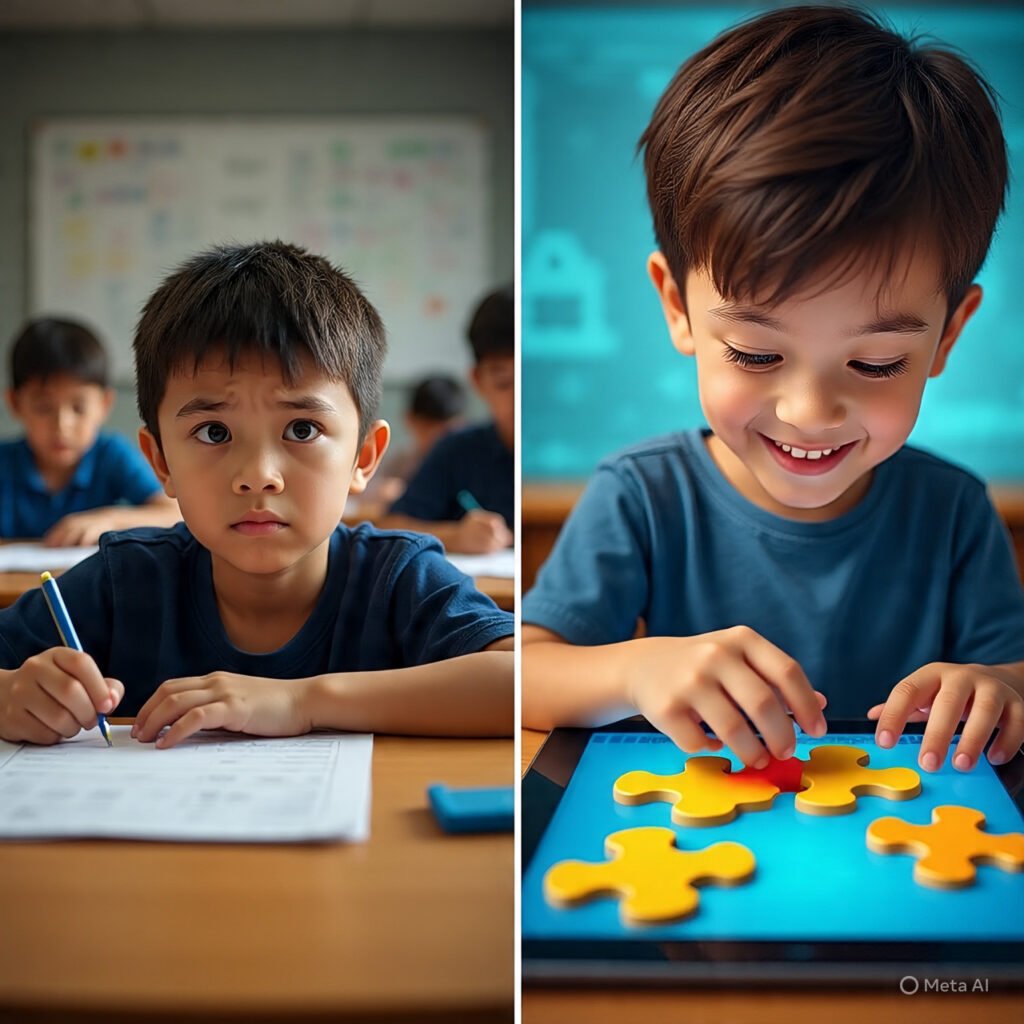
Game based learning also supports self-paced education. In a tuition class of multiple students, teaching speed often matches the “average” child, leaving slower learners behind and faster learners bored. With apps like Focus Fun, each child progresses at their own speed, ensuring no one is left frustrated or unchallenged.
Another factor is flexibility. Tuition is bound by fixed schedules and travel time. Game based learning can happen anywhere—at home, during travel, or even during a short break. It fits into the child’s natural rhythm, rather than forcing them into yet another timetable.
Parents who switch to Game Based Learning notice something important: the fights over study time stop. Children see learning as play, not punishment. That mindset shift is invaluable for long-term academic success.
How Focus Fun Brings Game Based Learning to Life
Focus Fun takes the principles of Game Based Learning and tailors them specifically for children in Classes 3–4. The app covers essential subjects like Maths, English, Science, and General Knowledge, but delivers them in ways children genuinely enjoy.
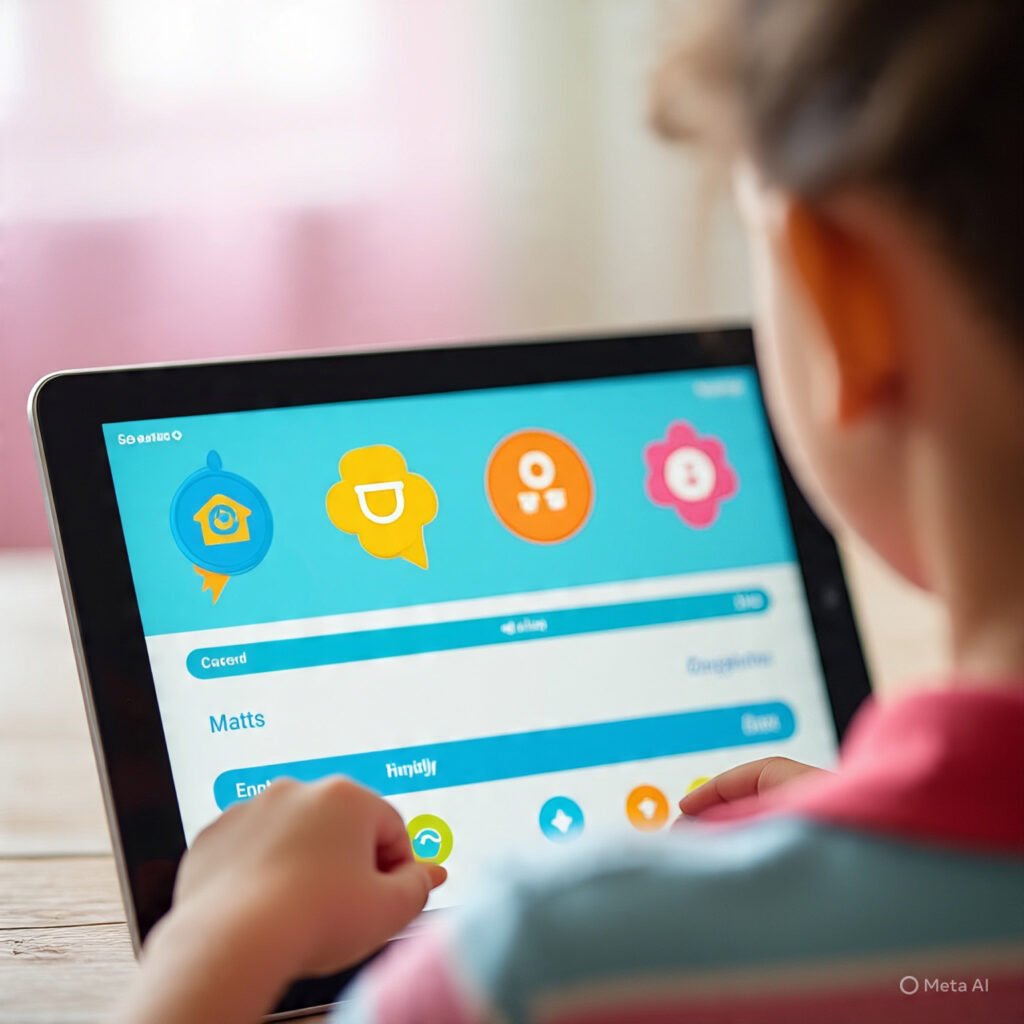
Each learning module feels like a mini-adventure. A maths quiz might become a racing game where each correct answer speeds up the child’s car. An English vocabulary challenge could be framed as a treasure hunt. These creative designs keep children deeply engaged, often without them realizing they are studying.
For parents, Focus Fun offers more than just fun—it provides control. Screen time limits can be set, progress reports can be viewed, and activities can be adjusted based on the child’s needs. This means children get the benefits of technology without falling into the trap of endless, unproductive screen use.
Importantly, Focus Fun rewards learning with badges, points, and levels. This system triggers the same dopamine response that makes video games addictive—but here, it’s used for academic growth. Children feel proud, motivated, and excited to learn more. And because it’s based on Game Based Learning, they associate study time with excitement instead of stress.
Real-Life Impact: Parents and Children Share Their Experiences
The shift from tuition to Game Based Learning has been a revelation for many families. Parents report that homework battles have reduced, confidence levels have risen, and grades have improved without constant nagging.
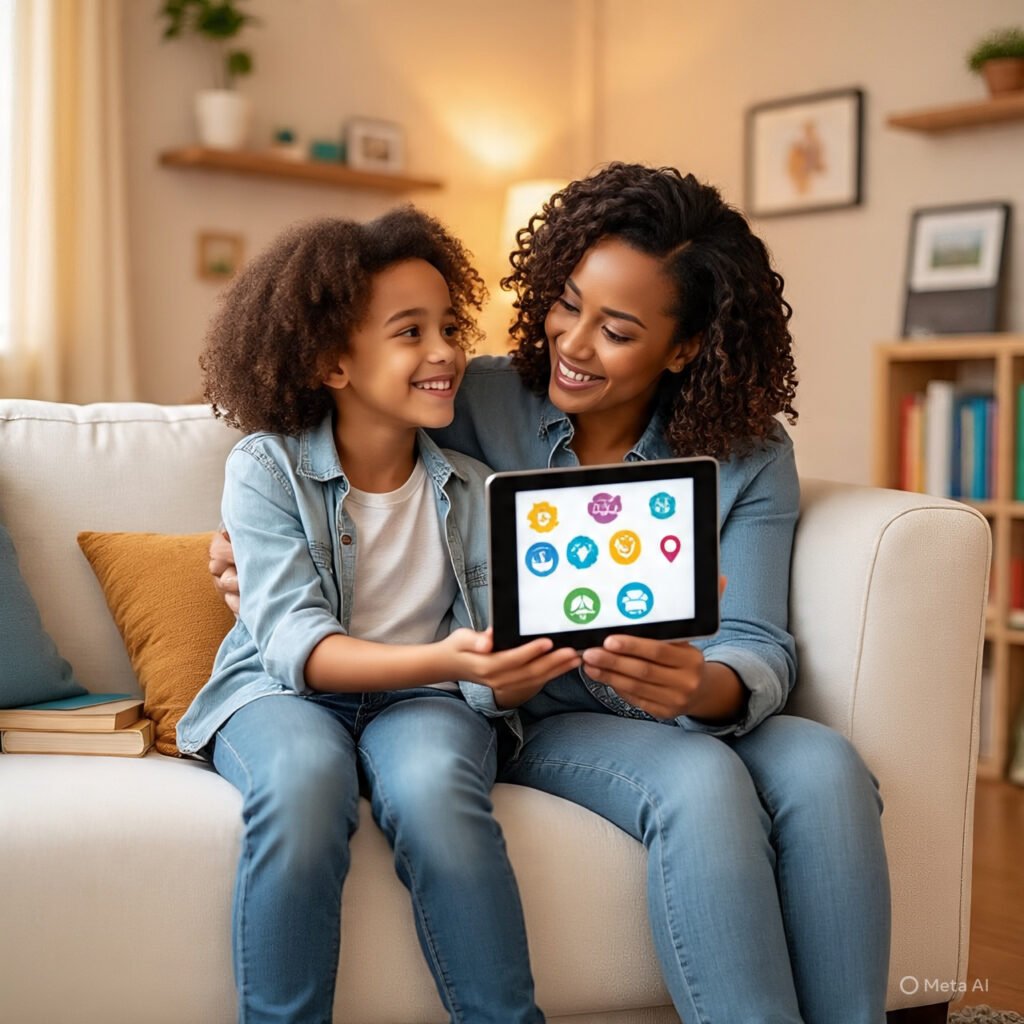
One mother of a Class 4 student shared, “My daughter dreaded tuition. She would cry before going. But with Focus Fun, she’s the one reminding me about her learning time. She loves earning points and showing me her badges. Her maths marks went from average to top of the class.”
Another parent noticed a positive change in screen habits. “Earlier, my son would spend hours on mindless videos. Now, when he’s on the tablet, it’s to play learning games. I feel more at ease knowing he’s learning and having fun at the same time.”
Teachers have also observed that children exposed to Game Based Learning are more active in class discussions, more confident in attempting difficult questions, and more willing to explore topics on their own. This is the kind of independence and curiosity every parent hopes to see.
Making the Switch: How Parents Can Get Started with Focus Fun
Transitioning from tuition to Game Based Learning doesn’t have to be abrupt. Many parents start by introducing Focus Fun alongside tuition, then slowly replace extra classes as they see results. The process is simple: download the app, set up your child’s profile, choose their class level, and set daily screen time.
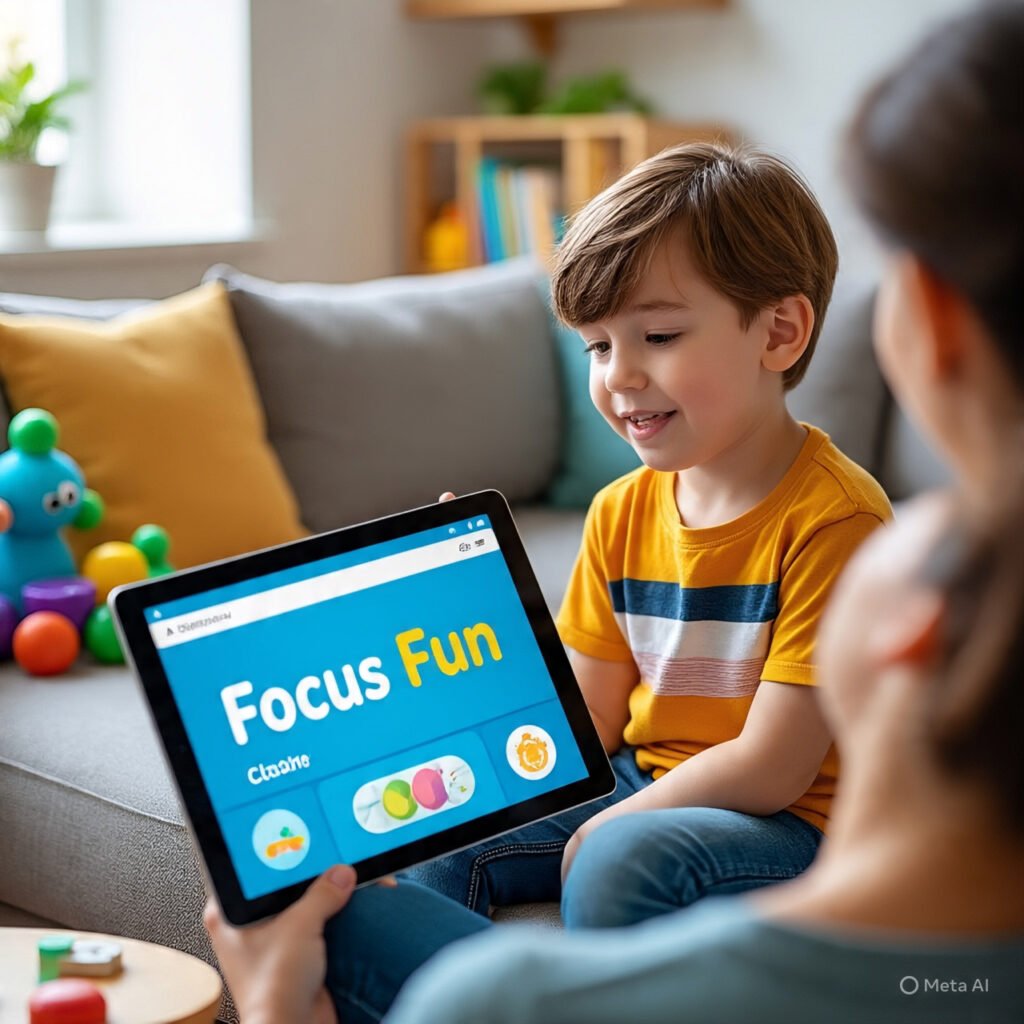
The first few days are crucial—sit with your child and explore the games together. Encourage them to try different subjects and celebrate their wins. Soon, you’ll see them engaging without prompts, driven by their own curiosity and the reward system.
Game Based Learning isn’t just about replacing tuition—it’s about transforming how children see education. For Class 3–4 students, it can mean the difference between learning out of obligation and learning out of joy. And with Focus Fun, that transformation is just a click away
The world is changing, and so are the ways children learn. Tuition may have been the answer for past generations, but today, Game Based Learning offers a more engaging, flexible, and effective approach. It nurtures curiosity, builds confidence, and turns education into an experience children love.
For Class 3–4 students, this is the perfect time to embrace interactive learning. With Focus Fun, you can give your child the best of both worlds—quality education and the joy of play.
✅ Visit www.focusfun.in and start your child’s Game Based Learning journey today.
FAQ’s
1. What is Game Based Learning for Class 3–4 students?
Game Based Learning is an interactive teaching approach that uses games, challenges, and rewards to make learning engaging and effective for young students.
2. How is Game Based Learning different from traditional tuition?
Unlike tuition, which often repeats school lessons in a fixed format, Game Based Learning turns concepts into interactive activities that boost motivation and understanding.
3. Can Game Based Learning improve academic performance?

Yes, it helps children grasp concepts faster, retain information longer, and develop problem-solving skills—leading to better grades and confidence.
4. Is Game Based Learning suitable for all subjects?
Absolutely. It works for Maths, Science, English, and even General Knowledge, as games can be designed around any curriculum topic.
5. Does Game Based Learning encourage too much screen time?
Not necessarily. When managed properly with time limits, it provides quality screen use focused on education instead of entertainment.
6. How do parents track progress in Game Based Learning?
Many platforms offer progress reports, quizzes, and achievement badges so parents can monitor their child’s learning journey.
7. Is Game Based Learning expensive compared to tuition?
In most cases, it’s more affordable because it eliminates travel, fixed schedules, and repeated class fees.
8. How does Game Based Learning become more engaging with the right tools?

With platforms like Focus Fun, children enjoy interactive challenges, fun quizzes, and reward systems that make learning exciting.
9. Can Game Based Learning replace tuition completely?
Yes, many families have replaced tuition with apps like Focus Fun, which offer subject-specific, curriculum-aligned games that match each child’s pace.
10. Is Game Based Learning safe for children to use?
When using trusted platforms such as Focus Fun, parents get built-in safety features like time limits, age-appropriate content, and detailed progress tracking.
